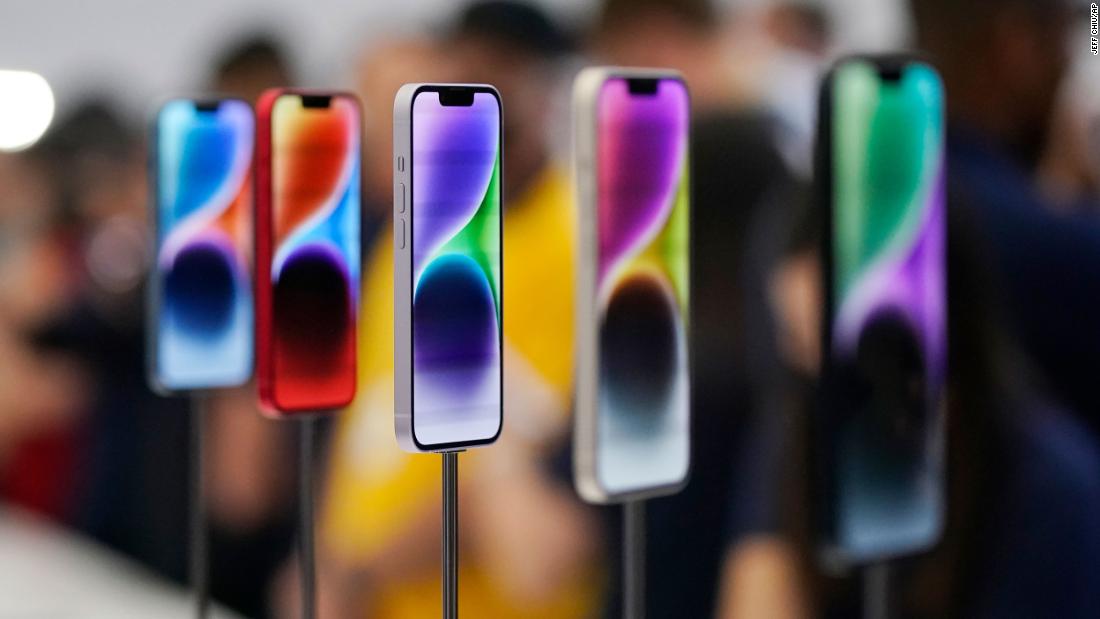
While Apple managed to keep the base price for the latest iPhone the same as it was for the previous generation, the iPhone 14 still starts at a hefty $799, and $899 for the 14 Plus model. Meanwhile, the higher-end 14 Pro model starts at $999 and the 14 Pro Max at $1,099. At a time when inflation is pinching consumers from all sides, deals from carriers can help make the latest iPhone more affordable.
Wireless carriers that have built extensive 5G infrastructure may also be offering these steep discounts as they seek customers to upgrade to 5G-enabled devices, according to Tom Forte, senior research analyst at D.A. Davidson. “They’ve invested billions of dollars in their own 5G networks and they’re trying to get a return on their investments,” Forte told CNN Business.
The iPhone has been capable of using 5G networks since the iPhone 12, released in 2020.
“The other reason, though, I think they’re able to do it is that the iPhones historically hold their values well,” he added, noting that many of the offers include trading-in an older iPhone model to qualify for the discounts or freebies of the latest devices. Many of these carriers then sell pre-owned and refurbished iPhones.
Still, it’s important to read the fine print, as these deals often come in the form of contracts, a practice that’s been common since cellphones became ubiquitous. Forte noted that if you were to take advantage of some of these iPhone 14 promotions but then try to cancel the service after a month or two, you will likely be responsible for “a lot more than the purchase price” of the new phone.
Apple and carriers may also be capitalizing on the rise in popularity of buy-now-pay-later plans among consumers in recent years, according to Julie Ask, vice president and principal analyst at Forrester. So more people seeking options to pay for a new iPhone over time might be especially drawn to carrier deals that end up including discounts on the device and cell plans, even if they carry a longer commitment.
“There’s been a bit of an uptick in consumers’ willingness and interest to pay over time,” she told CNN Business. Still, she said carriers are often looking to “lock people in for at least a couple years, so that’s the fine print I would be looking for.”
